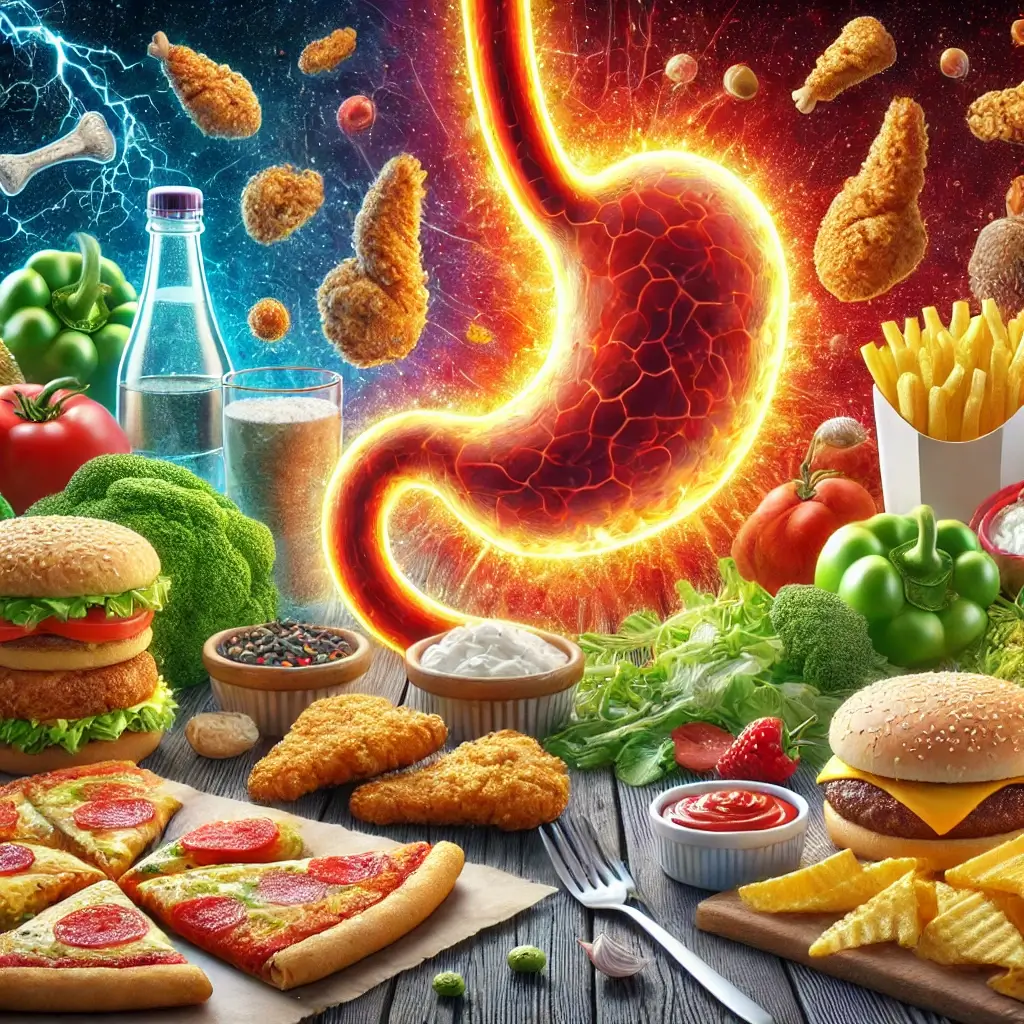The Challenge of Fatty Foods
Fatty foods can challenge the digestive process due to many factors, which can be troublesome for those with Crohn’s disease and anyone. High-fat foods impede digestion and enhance gastric acid secretion, leading to various digestive problems.
Excessive Stomach Acid and Its Effects
Excessive stomach acid can irritate the stomach’s sensitive lining, resulting in discomfort and unpleasant symptoms. Heartburn and gastroesophageal reflux are common consequences, causing a burning sensation in the chest or neck and interfering with swallowing or finding a comfortable lying position.
Indigestion and Long-term Risks
Excessive gastric acid secretion can cause indigestion or dyspepsia, marked by bloating, nausea, burping, and upper belly discomfort. Extended exposure might potentially damage the stomach lining, resulting in more severe disorders such as gastritis or peptic ulcers.
The Importance of Fiber
Fried and processed meals typically have a low fiber content. Dietary fiber facilitates efficient food movement through the digestive tract and encourages regular bowel movements. Insufficient fiber intake might lead to constipation.
The Complexity of Fats
Saturated and trans fats, typically found in fried foods and fatty meats, are more difficult to digest than unsaturated fats. Cooking methods and combined effects of high fat, calories, and sodium can exert pressure on the digestive system.
Strategies for Better Digestion
Choose healthier cooking techniques, opt for lean protein sources, emphasize whole foods, and practice portion control and mindful eating. Understanding the impact of oily meals on digestion is crucial for making well-informed dietary decisions and maintaining gut health.
